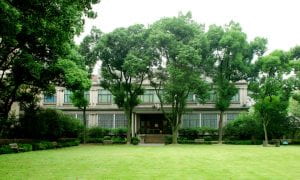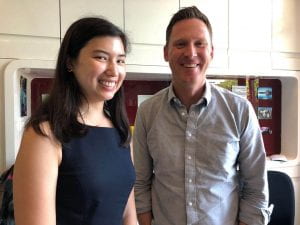While Shanghai may seem to revolve around business and consumerism, there is plenty of action going on behind the scenes. In addition to the people introducing new products and holding big events, there are those who lay the groundwork for these developments and later convey their impact to the rest of the world.
As a lifetime foreign service officer, Nancy Leou currently serves as the Politics and Economics Chief of the US Consulate General in Shanghai. She describes her job as akin to an international correspondent’s; after communicating with the local government and populace, she writes reports on recent issues and sends them to her colleagues in Washington DC. To formulate effective US-China policy, she must convey China’s on-the-ground attitudes and developments to the American government, as well as speak on behalf of the US government to her counterparts in China.
Over the years, Nancy has experienced many changes in China and the foreign service. Social media and digital technology have radically transformed communication and financial sectors, forcing foreign policy to adapt and move at a faster pace than before. Furthermore, after beginning her foreign service career performing specialized tasks, Nancy has become a leader, assuming more management duties and consolidating her knowledge to communicate more comprehensively with officials.
Rob Schmitz, on the other hand, is an actual international correspondent. An NPR journalist in Shanghai, he’s spent the last decade reporting China’s latest political and economic developments. That can mean anything from speaking on air about economic tariffs for NPR’s Morning Edition or traveling on a government-sponsored trip to Xinjiang. China’s policy and technology changes have also influenced Rob’s reporting. Where before he kept regular contacts and searched the pre-firewall internet, now he relies more heavily on improvised interviews and other methods of “shoe-leather journalism.”
In spite of these challenges, Rob believes in the importance of his job. He describes himself as a “truth-seeker” with a responsibility to present an uncensored picture of China to the American public. As political events unfold and evolve, I too, believe that reporters like Rob will have an increasingly significant role to play.
Shanghai (and China, at large) moves at an unbelievable scale: in the blink of an eye, restaurants open and close, buildings go up and come down, and regulations begin and end. While we owe many corporate businesses their due for this, but it can be easy to forget that many other people take part in these developments, as well. Negotiating public policies, maintaining international relationships, and conveying news of these events can be just as important to advancing this city’s growth.
*This title is a nod to my Tanner Presentation Group Section, circa fall 2017. Thank you to the Tanner Committee; who knew your title would match my presentation and this blog post so well!

